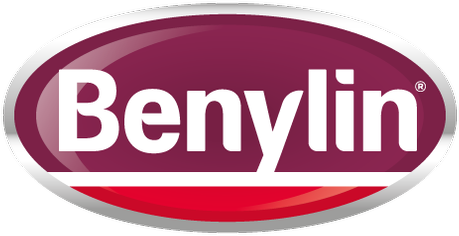
There are many different types of coughs but generally, these can be split into two categories. These include a productive cough, which – as the name suggests – produces mucus or phlegm, or an unproductive or dry cough, where nothing is coughed up1.
Understanding the different types of coughs can help you find the best treatment. This guide will break down the types of cough you may experience, so you can learn what to look for and how to effectively treat the symptoms.
Chesty cough
Chesty coughs are a productive type of cough that produces phlegm to clear your airways2. A cough is a reflex and an attempt from your body to protect the lungs3 from dust and irritants2.
Symptoms of this type of cough
A chesty cough may include the following symptoms:
The production of mucus when you cough2
A rattling sound around your lungs3.
Causes of this type of cough
Upper respiratory tract infection (URTI), such as a cold or flu2.
Chest infections, often following colds or flu4.
Other health conditions3.
Read More About Chesty Coughs Here
Mucus cough
Mucus coughs produce phlegm to clear your airways2. They may feel unpleasant, but mucus serves a very important purpose5. It protects your airways from irritating substances, as well as containing antibodies, enzymes, and protein to help recognise, trap, and kill invading bacteria and viruses5.
Symptoms of this type of cough
The symptoms of a mucus cough include:
A cough that feels “wet” due to mucus or phlegm production6.
Causes of this type of cough
Colds and flus are the most common cause6
Allergies2
Asthma2
A pre-existing condition, such as COPD (chronic obstructive pulmonary disease)2.
Read More About Mucus Coughs Here
Tickly cough
Tickly coughs are a type of dry cough, known as an unproductive cough, as they don’t produce any mucus or phlegm2. This can lead to a dry feeling and a sensation of something being stuck in your throat1.
Symptoms of this type of cough
When suffering from a tickly cough, you may experience the following symptoms:
A cough that won’t produce phlegm or mucus2
A dry and tickly sensation in the throat1,2 .
Causes of this type of cough
Viral illnesses, such as cold and flu7
Allergies and irritants7
Asthma7.
Read More About Tickly Coughs Here
Dry cough
Dry coughs produce no phlegm or mucus2, and are categorised as an unproductive cough1. These can cause irritation in your throat and result in an aching feeling in your chest muscles8.
Symptoms of this type of cough
The following symptoms may indicate you have a dry cough:
No production of phlegm or mucus2
A tickly sensation in the throat2
A feeling of something being in your throat, which doesn’t clear with coughing1.
Causes of this type of cough
Most coughs are a result of viral illnesses, like cold and flu9
Allergies, such as hay fever9
Smoking9
Asthma2
Acid reflux9.
Read More About Dry Coughs Here
Persistent cough
Persistent coughs aren’t categorised as productive or unproductive. Instead, they’re identified by their duration. Most coughs will clear up within a few weeks9, but coughs that last longer than three weeks are considered persistent9. These coughs can have a number of causes2 and may be considered chronic if the cough persists for over eight weeks1. If your symptoms worsen, you should contact your GP9.
Symptoms of this type of cough9,1
A persistent cough has the following symptoms:
A cough that lasts more than three weeks
Irritation, pain, and discomfort in the throat.
Causes of this type of cough2
Long-term respiratory tract infections, such as bronchitis
Mucus dripping from the back of your nose into your throat, known as postnasal drip
Gastro-oesophageal reflux disease (GORD), an irritation of the throat from leaking stomach acid
Allergic reactions to pollen, dust, or other irritants
Smoking
Asthma
Certain medications.
In rare cases, a persistent cough may be a sign of a more serious condition, such as cancer or heart failure2.
Children’s coughs
Children’s coughs are common and normal, with children getting an average of six to eight coughs per year when they start school10. These can be especially common in the winter months10 and can appear in different ways, but there are some common symptoms to look out for.
Symptoms of this type of cough10
A children’s cough may have the following symptoms:
Coughing, which may get worse at night
A runny nose
High temperature (above 37.5 C)
A sore throat.
Causes of this type of cough
Colds or viral infections10
Allergies, such as hay fever2
A flare-up of asthma2
Second-hand smoke – children who live in a household with smokers are at an increased risk of catching coughs10.
Read More About Children’s Coughs Here
Whooping Cough
Whooping cough is named quite literally for the ‘whoop’ sound sufferers make when drawing breath after coughing11. This is especially pronounced in children11. Caused by a bacterial infection, it is highly contagious11, and the cough can last for one to six weeks11.
You will likely need to see a GP for this type of cough. Antibiotics may be prescribed to prevent any potential spreading of the infection, but they won’t usually help your symtoms11. Ibuprofen or paracetamol may soothe pain symptoms –but you should contact your GP with any concerns11.
This type of cough has more severe symptoms in babies and children than adults, but you can experience it at any age11.
Symptoms of this type of cough11
Early cold-like symptoms, such as a sore throat, runny nose, and sneezing
Regular and severe bouts of coughing (usually seven to 10 days after infection)
A whooping sound between coughing fits
Cough that worsens at night
Coughs may be dry or produce thick mucus
Coughing may cause sweating and a flushed appearance
Vomiting after a coughing fit
Children may develop a bluish-purplish tinge after coughing fits due to a lack of oxygen.
Causes of this type of cough
A Bacterium known as Bordetella pertussis, which infects the upper airways and is spread through droplets in the air11.
When to see a GP for your cough
Coughs usually clear up on their own in around four weeks and won’t require you to see a GP9.
However, you should see a GP if you experience any of the following9:
For Children:
A persistent cough (one that lasts around 3 weeks)
Weight loss for seemingly no reason
A weakened immune system due to other conditions or treatments.
You should seek urgent medical attention if you9:
Cough up blood
Suddenly experience much more severe symptoms, such as a hacking cough
Feel very unwell
Experience chest pains and difficulty breathing
Notice swelling in the side of the neck.
